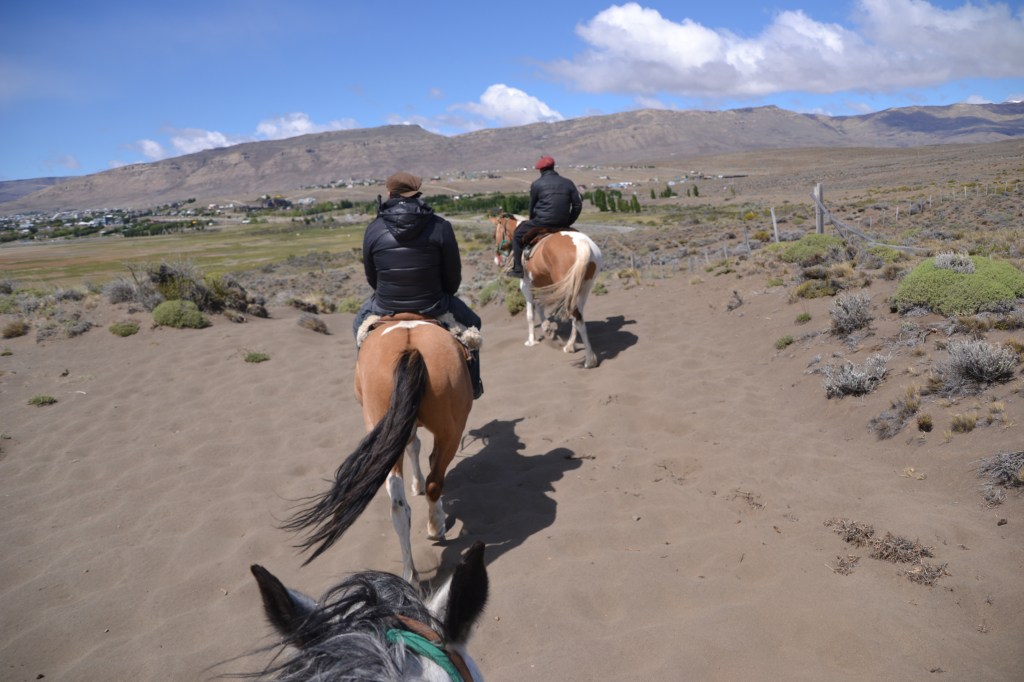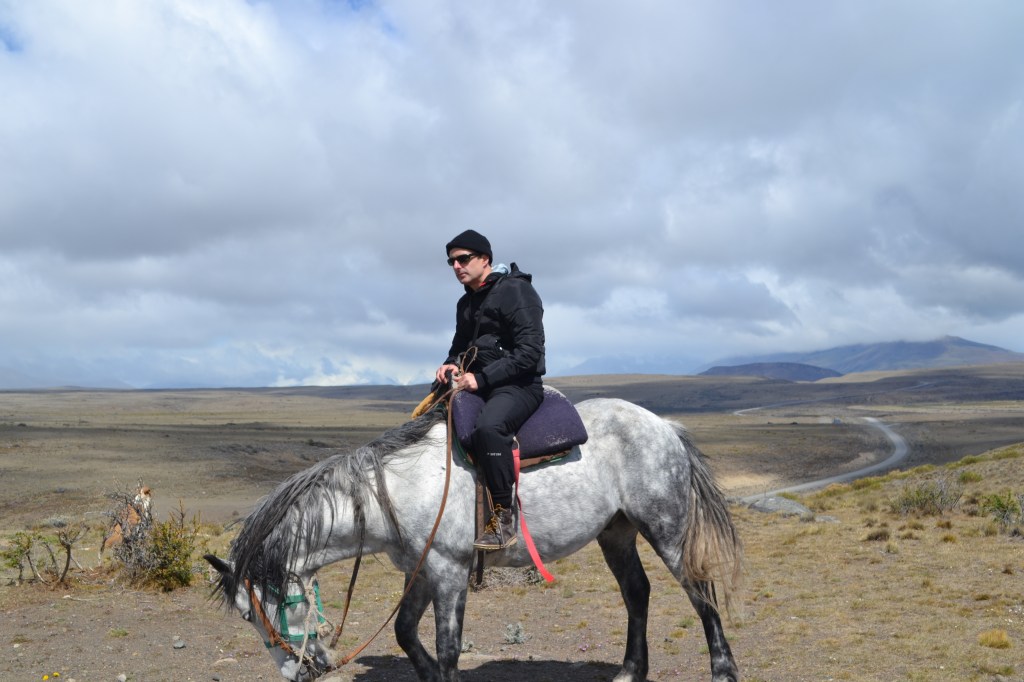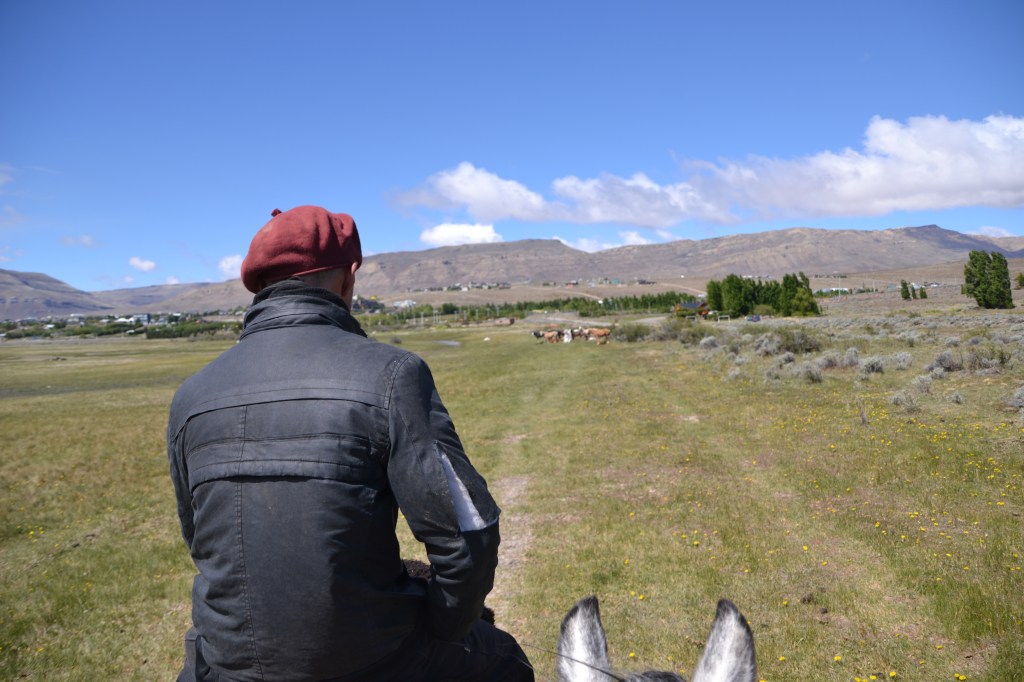The gauchos were hard, taciturn men. Their English was limited. My Spanish was worse. “Signor,” one growled and handed me the reigns of a horse he had led from of the paddock.
I grew up around horses and rode them for a term at university. Yet I have never been remotely confident with them. They always seem to be in charge.
There had been helmets whenever I had ridden them before. In Patagonia, a beret is thought protection enough. My beanie hat would have to do. We had mounting blocks back then, as well. Here in Argentina, you either swung up in one fluid movement as the gauchos did, or you floundered about like an upside down beetle until you were shoved into the saddle, like me.
We clip-clopped out of the estancia*, escorted by a fleet of dogs. The hooves kicked up the dust.
– acortar, said one of the gauchos riding alongside and holding up his reigns.
–¿Que?
-acortar
-Perdón, no entiendo
“Espeak Inglis?”
-Si”
“Shorten” he said and gestured on his own reigns.
But however much I shortened the reigns, it never seemed short enough. “Shorten,” the gaucho called out repeatedly. It did not matter much, though, because the horse took no notice of me, anyway. It knew the way and followed the others. It carried on walking when I asked it to trot but, later, broke into a trot on its own initiative.
The only other guests were a couple from Venezuela, but they were more competent with horses, and spoke proper Spanish, and had signed up for a longer ride. They cantered off towards Lago Argentino with some of the gauchos.
The rest of us passed along dusty tracks into the hills. The landscape was starkly beautiful with stubbly grass and clumps of bush interspersed with rocks. The sun-bleached greens and windswept greys contrasted with the emerald green of Lago Argentino and the snow-dusted mountains beyond it and the deep blue of the sky swirling with clouds which threatened but never brought rain.
On the way back, within sight of the estancia, the horse decided that it had done enough for the day and declined to go any further. It knew full well that I had no authority to make it.

“Come on!” I said in frustration, as if to a car which refused to start, and with just as much effect. Then ¡vamos! as if it might be a language problem. In the end, one of the gauchos had to ride back and coax the horse in. It listened to him.
Back at the estancia, I was handed a gourd of maté and a silver straw.
Yerba-maté is a plant of the holly family native to the Southern Cone countries. Its leaves have been dried, infused in hot water and drunk since pre-Colombian times. The maté gourd is as ubiquitous in modern Argentina as Styrofoam coffee cups in London at rush hour. They are cradled by passengers on buses, drivers of cars, people riding pillion on motorbikes and passed between friends in the park.
It is said to be an acquired taste, which means that it is foul to the uninitiated. I drank some out of politeness, passed back the gourd and said muchas gracias and adiós.
© Richard Senior 2020
*Ranch


